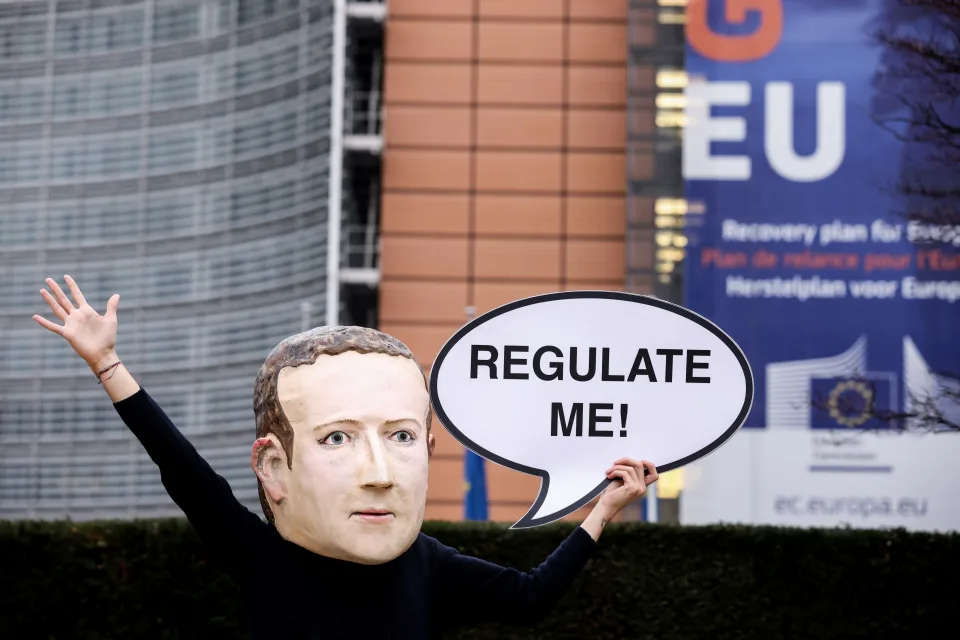The year 2023 marked a significant turning point for tech companies, as they made unusual decisions under the pressure of European Union (EU) regulations.
The European Union has long been at the forefront of regulating “Big Tech” companies, aiming to protect consumers and promote fair competition. In 2023, the EU’s efforts to rein in tech giants finally came to fruition, resulting in notable changes across the industry.
One of the most immediate outcomes of increased EU regulations was the adoption of the USB-C charging standard by Apple in its iPhone 15 lineup. This marked a departure from Apple’s standard lightning port and aligned with the European law that mandated all new phones and mobile devices to support USB-C (Link to accessories) by the end of 2024.
Apple’s decision to comply with the EU regulations was not only driven by legal obligations but also by the company’s recognition of the need for global standardization. Greg Joswiak, an Apple executive, acknowledged the company’s adherence to local laws, stating, “We have no choice as we do around the world but to comply.” Another significant change influenced by the EU was Apple’s agreement to support the Rich Communication Services (RCS) standard in iMessage. RCS is a protocol that modernizes text messaging between iPhone users and their Android counterparts. Apple’s long-standing resistance to adopting RCS was met with pressure from both the EU and other companies advocating for a level playing field in the messaging landscape.
While Apple did not publicly disclose the reasons behind its change in stance, it coincided with the deadline for companies to challenge the EU’s gatekeeper rules. By supporting RCS, Apple aimed to appease EU regulators who had the authority to enforce more stringent measures, such as requiring iMessage to be fully interoperable with other chat apps like WhatsApp.
Consumer Protection and Transparency
The EU’s commitment to consumer protection and transparency has consistently driven its regulatory actions. In 2023, the implementation of the Digital Services Act and the Digital Markets Act further strengthened the EU’s influence over major social media platforms.
Under the Digital Services Act, companies like Facebook, TikTok, Twitter, YouTube, Snapchat, and Instagram are required to provide detailed disclosures about disinformation and harmful content. Additionally, these companies must offer transparent explanations of their recommendation algorithms, promoting accountability and empowering users to make informed choices.
Paul Barrett, the deputy director of NYU’s Stern Center for Business and Human Rights, highlighted the positive impact of these requirements, stating, “If you force the social media industry to explain itself, to reveal its inner workings, it will have an incentive to not misbehave and to self-regulate more vigorously.”
EU regulations have also paved the way for increased user control over their online experiences. Tech companies, including Snapchat, Meta (formerly Facebook), and TikTok, have introduced opt-out options for European users, allowing them to bypass recommendation algorithms entirely. This empowers users to shape their social media feeds based on their preferences rather than being solely influenced by algorithmic recommendations.
Snapchat, specifically, has taken additional steps to protect younger users within the EU by ending most targeted advertising for 13- to 17-year-olds. Meta, on the other hand, was compelled to offer EU users the choice to opt-out of targeted advertising or opt for an ad-free experience through a monthly subscription.
Global Impact
The influence of EU regulations extends beyond its borders, benefiting users worldwide. Carolina Milanesi, a consumer analyst with Creative Strategies, emphasized the higher degree of consumer protection in Europe compared to the United States. She noted that these protections often “cascade down” to other regions due to the practicality of implementing consistent standards across geographies.
The changes implemented by tech companies in response to EU regulations set a precedent for global industry standards. As companies conform to EU rules, consumers in other regions can also expect improved user experiences, increased transparency, and greater control over their digital interactions.


